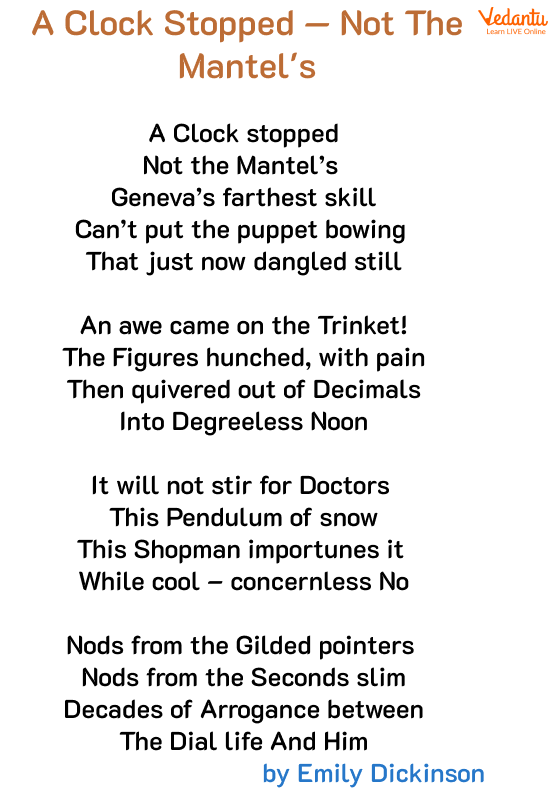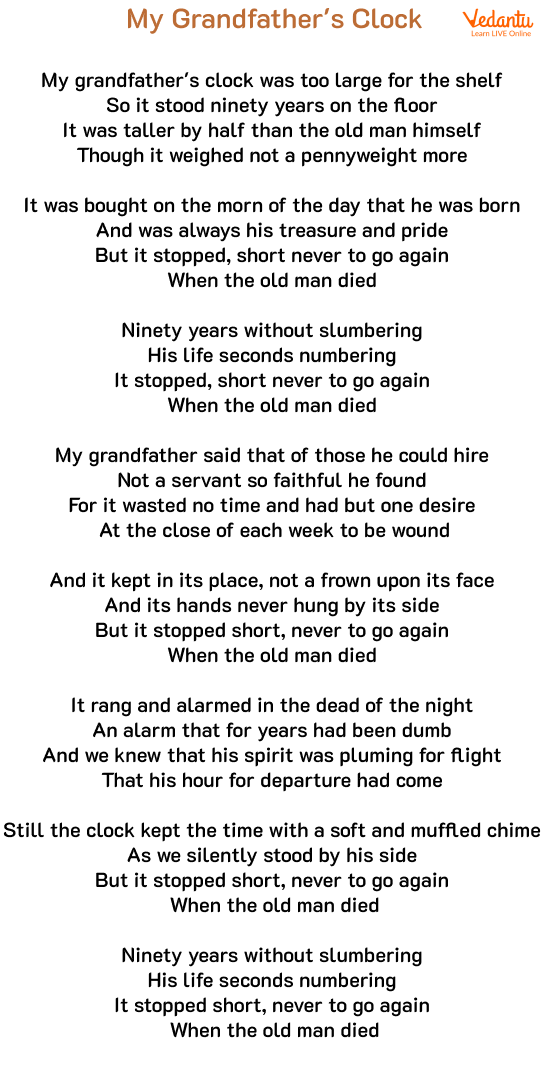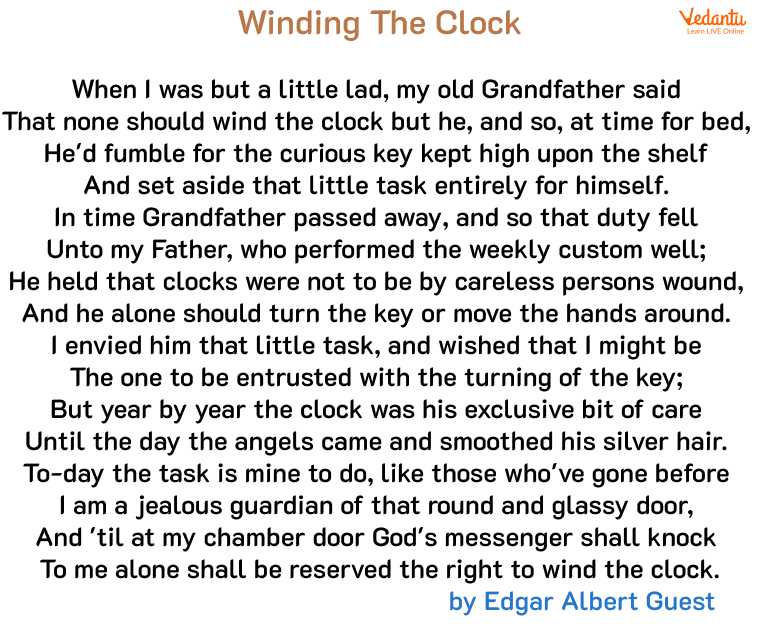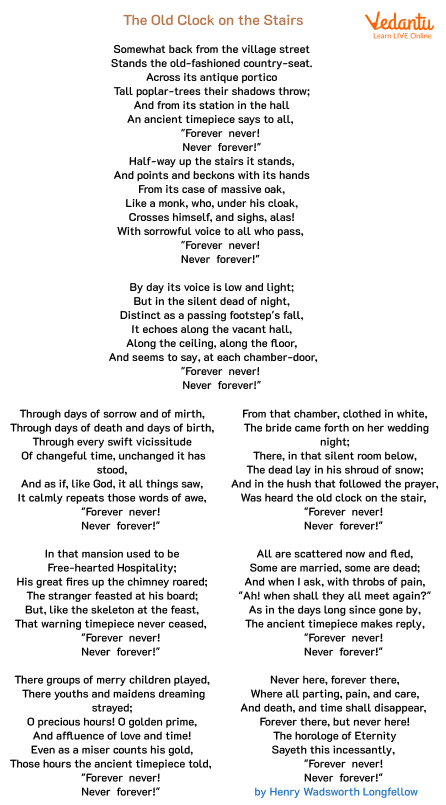Clock Poems for Children
You must have heard many sayings related to time like “time doesn’t wait for anybody” or “never waste time” or “the days are long but the years are short.” But children may not understand these completely. So, a fun way to keep your children engaged while you teach them about time or the instruments which measure the time that is clocks is to make them read an interesting poem on clock.
Here is a collection of clock poems for kids in English with summaries for your children. Enjoy!
List of Clock Poems in English
A Clock Stopped — Not The Mantel's

A Clock Stopped — Not The Mantel's by Emily Dickinson
Summary: This poem on clock is written by the famous author Emily Dickinson. Through this poem, the author is talking about life and death. She has compared the end of a life to a ‘stopped clock’ and a dangling puppet. She has personified a clock and consolidates the idea that when a clock is winding down and finally stops, it is often accompanied by pain, just like our deaths.
In the last stanza, ‘Decades of Arrogance between the dial life and him’, Dickinson refers to the clock’s shopman as ‘him’. The lines imply that the shop owner took the clock for granted and only realised its importance after it had stopped – just like people take each other for granted and realise only after their loved ones die.
My Grandfather's Clock

My Grandfather's Clock by Henry Clay Work
Summary: It is a classic song written by Henry Clay Work in 1876. The grandfather clock got its name from this poem. The poem mildly discusses death with children. It narrates a story about a grandfather's clock from a grandchild's point of view. The clock was purchased when the grandfather was born, and after enduring 90 years, it suddenly stopped forever when the grandfather died. The clock was required to be wound at the end of each week. In this poem, the clock seems to share the grief and joy of grandfather, as it rang 24 chimes when the grandfather brought his bride for the first time and suddenly stopped to never work again when the old man died.
Winding the Clock

Winding the Clock by Edgar Albert Guest
Summary: The poem is written by Edgar Albert Guest. It is a simple poem that runs through the timeline of the poet's entire life – from when he was a lad to when he died. The poet had a tradition in his home of winding an ancestral clock, which is mentioned in the poem for over three generations. First, his grandfather had the responsibility and then his father. All this time, the poet would be too envious of the two as he wanted to look after the clock. Finally, when his father also died, the poet took the responsibility of being the guardian of the round clock and served it till he died.
The Old Clock on the Stairs

The Old Clock on the Stairs by Henry Wadsworth Longfellow
Summary: Henry Wadsworth Longfellow’s long poem contains repetition to highlight the personification of the clock. It conveys the idea of humans' relationship to time. The refrain "Forever — never! Never — forever!" focuses on the famous quote: time stops for nobody. With each stanza set in a different background story with different emotions, the poem reminds us that no one can escape the cycle of time.
Conclusion
Poems on the clock or any other topic are a great way to induce the habit of reading and listening in your little ones. Memorising and then reciting poems in front of others will also boost the confidence of the kids. So, if you’re looking for more such fun poems, head to our website and enjoy!


FAQs on English Poems on Clock – Fun Learning for Kids
1. What are the benefits of reading poems to children?
Making children read and listen to poetry from a young age improves their verbal skills, vocabulary, and memory. They begin to see the world from different perspectives. Poetry allows kids to cherish even the little things around them and encourages them to engage in other art forms as well, making them more creative.
2. Mention some basic literary devices used in the above poems.
Some literary devices used are as follows:
Alliteration: When the initial consonant sounds are repeated in a sentence.
Personification: Presenting a thing or animal in the poem with human qualities or characteristics.
Rhyming Scheme: The poem’s repeated pattern of rhyming words appearing at the end of each line, like ABAB, AABBC,... etc.
Metaphor: Comparing one thing to a completely different thing (without using "like" or "as")
Simile: Comparing two unlike things using "like" or "as".





